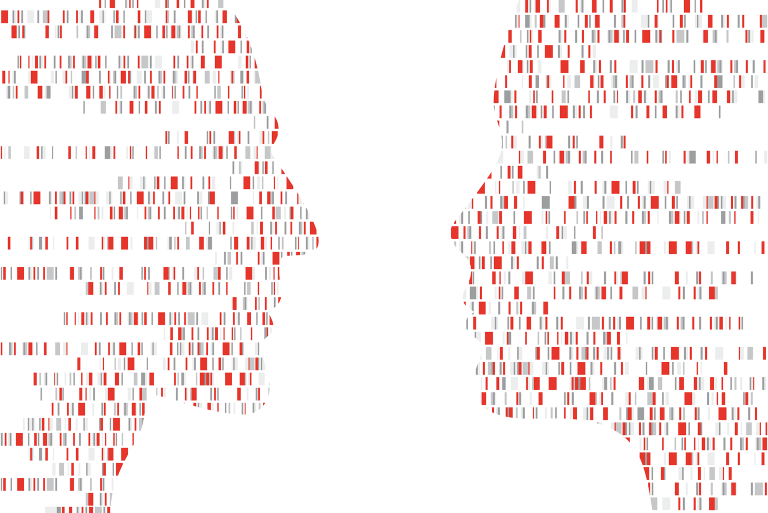News And Updates
Newsletter - February 24th, 2022
Workshop: Last Chance for Deal!
The Clinical Case Studies Workshop with Dr. Kendal Stewart starts tomorrow, and there’s still time to reserve a limited capacity virtual seat! Can’t make it in person or catch the live stream? No worries, as we’ll be recording it to view on demand for those who register. Use code “GENE22” at checkout and save $50.
Neuro / Psych Training Course
We’ve launched a new Teachable Training module detailing our Neurological / Psych panel. Intended for providers and partners that would like to gain a deeper understanding; the course includes one complimentary test kit to try on themselves or a patient for personalized learning.
Why is it relevant?
World Encephalitis Day falls on February 22nd. This day aims to bring global awareness for people who have been directly or indirectly affected by encephalitis. Encephalitis is commonly known as inflammation of the brain, and can affect any age, gender or ethnicity (Source). Genetic factors that play a role in neuro-inflammation can impact motor skills, attentiveness, and other cognitive abilities. Maintaining brain health is essential for emotional regulation, focus, restful sleep, the growth and survival of neurons, and proper autophagy and detoxification. (Source) GX Sciences strives to educate our practitioners about genetic and environmental factors that could explain symptoms associated with various neurological and/or psychological disorders.
Why is it important?
Every minute, roughly one person is affected by encephalitis (Source). Our comprehensive nutrigenomic panel, Neurological | Psych, identifies underlying contributing factors to neuro-inflammation, mood disorders, post-concussion syndrome, motor control issues, headaches, vertigo/dizziness, personality disorders, seizures and neurodegenerative disorders. This genetic test evaluates specific genes that impact excitatory and inhibitory neurotransmitters. Genetic predispositions, in combination with inflammatory lifestyle factors such as stress, alcohol intake, poor diet choice and stimulant use, can fuel unfavorable symptoms. Genetic findings and interpretations through the GX Sciences supplementation algorithm can help determine:
- Contributing Genetic Factors in Mood, Anxiety and/or Focus Issues
- Insufficiencies in Neurogenesis
- Autophagy Consideration in Relation to the Neurological System & Neuro-Inflammatory Response
- Deficiencies in the Neuro-Inflammatory Response
- The Body’s Ability to Detox
3 Genes from the Neuro / Psych Panel
COMT
Worrier or warrior? The COMT gene has instructions for making an enzyme responsible for the breakdown of dopamine and other catechol’s such as norepinephrine and epinephrine. There are two variants of this gene known as the worrier and the warrior. The homozygous SNP, or the “worrier,” can result in reduced dopamine degradation leading to altered stress response. In contrast, the “warrior” mutation breaks down these neurotransmitters quickly. In white populations, the estimated genotype frequencies are 25% for high enzymatic activity, 50% for intermediate, and 25% for low enzymatic activity. The low enzymatic activity variation is less common in black populations, measuring at only 7% for the mutation. (Source 1, Source 2)
MAOB
Major depressive disorder affects approximately 17.3 million American adults, or about 7.1% of the U.S. population age 18 and older, each year. An enzyme called monoamine oxidase is involved in removing neurotransmitters from the brain. The MAO-A isoenzyme metabolizes serotonin, norepinephrine, and dopamine, while MAO-B primarily metabolizes dopamine. Patients who have polymorphisms of MAO-B have a higher risk of clinical depression and mood disorders. (Source 1)
GAD1
According to a poll released in October 2020 by the American Psychiatric Association (APA), 62% of Americans feel more anxious than they did at than that point last year. A mutation in GAD1, especially a homozygous mutation, affects the conversion of glutamic acid into GABA and can exaggerate symptoms. Individuals with the homozygous GAD1 mutation have trouble converting glutamic acid to GABA, resulting in an imbalance. The brain becomes over-excited due to a surplus of glutamic acid and deficit in GABA levels. Symptoms may include headaches, irritability, restlessness, anxiety and ADHD-like symptoms. (Source 1)
Registered Provider? Order test kits, view sample reports, access resources, and more via our portal
Not registered yet? Submit our online registration form with your credentials and gain provider access
Want to learn more to see if GX Sciences testing is right for your practice? Schedule a consultation today





